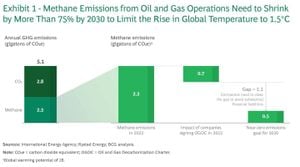Recent polling data has shed light on the dynamics of the upcoming Polish presidential election, highlighting key candidates and their current standing among voters. A recent survey by United Surveys, commissioned by Wirtualna Polska, reveals significant insights about potential election outcomes.
Leading the pack is Rafał Trzaskowski, the candidate from the Civic Coalition (KO), who has garnered 36.7% of the projected votes. According to Wirtualna Polska, "Podobnie jak w poprzednim sondażu, pozycję lidera utrzymuje kandydat KO Rafał Trzaskowski, na którego swój głos chce oddać 36,7 proc. osób. Prezydent Warszawy notuje jednocześnie niewielki spadek o 1,1 pkt proc. w stosunku do sondażu sprzed dwóch tygodni." This indicates Trzaskowski's slight decrease of 1.1 percentage points compared to previous polling, showing the volatility of voter sentiment as the election approaches.
Rising to the second place is Karol Nawrocki, backed by the ruling Law and Justice party (PiS), who now claims 25.3% of the votes, up from 25% previously. This minor increment showcases why Nawrocki has become a formidable competitor. The poll also shows support for the other candidates significantly trailing behind, with Sławomir Mentzen of the Confederation receiving 9.8%, followed by Szymon Hołownia and Magdalena Biejat, who stand at 6.6% and 5%, respectively.
The survey data suggests the need for a second round of voting, as no candidate is likely to secure more than 50% of the total votes needed for outright victory. It highlights the polarized nature of the political climate, indicating deep divisions among voters. A notable aspect of the poll shows, "Gdyby w drugiej turze spotkali się Trzaskowski, kandydat KO i wspierany przez PiS Nawrocki, 5,1 proc. ankietowanych deklaruje, że przy takim układzie nie pójdzie do urn w drugiej turze wyborów prezydenckich," which translates to concerns about voter turnout if these two candidates face off. This could lead to significant portions of the electorate abstaining from voting, potentially shaping the outcome dramatically.
Frequent changes since the last election reveal the fickle nature of Polish politics. Potentially alarming for Trzaskowski is the fact he experienced the most significant dip among candidates. Nevertheless, if he faces Nawrocki, 51.3% of respondents stated they would support Trzaskowski, reflecting increased confidence for the KO candidate as we near the election. This question’s responses yielded a favorable percentage for Trzaskowski compared to Nawrocki's 37.3%, indicating changing tides.
The poll results were gathered from 1,000 respondents during the period between February 7-9, 2023, using the CATI and CAWI methodologies, ensuring a broad representation of the electorate.
Voter turnout remains another significant factor when analyzing the election's possible outcomes. Should the elections happen this coming Sunday, estimates indicate participation could reach around 56.7%. Of those surveyed, 44.6% expressed certainty about casting their votes, with 12.1% indicating they were likely to participate. Conversely, 14.7% revealed they would not vote, and 25.6% said they probably wouldn’t be attending the polls, accentuating the potential for abstention as a variable influencing the election’s outcome.
The imminent Polish presidential elections are set against this backdrop of fluctuatingsupport and uncertainty among voters. Each candidate's leverage within the polls shapes their strategies and campaign directions as they aim to consolidate support leading up to the elections. Voters remain divided, portraying broader national concerns and aspirations, which will eventually reflect within the ballot box come election day.



